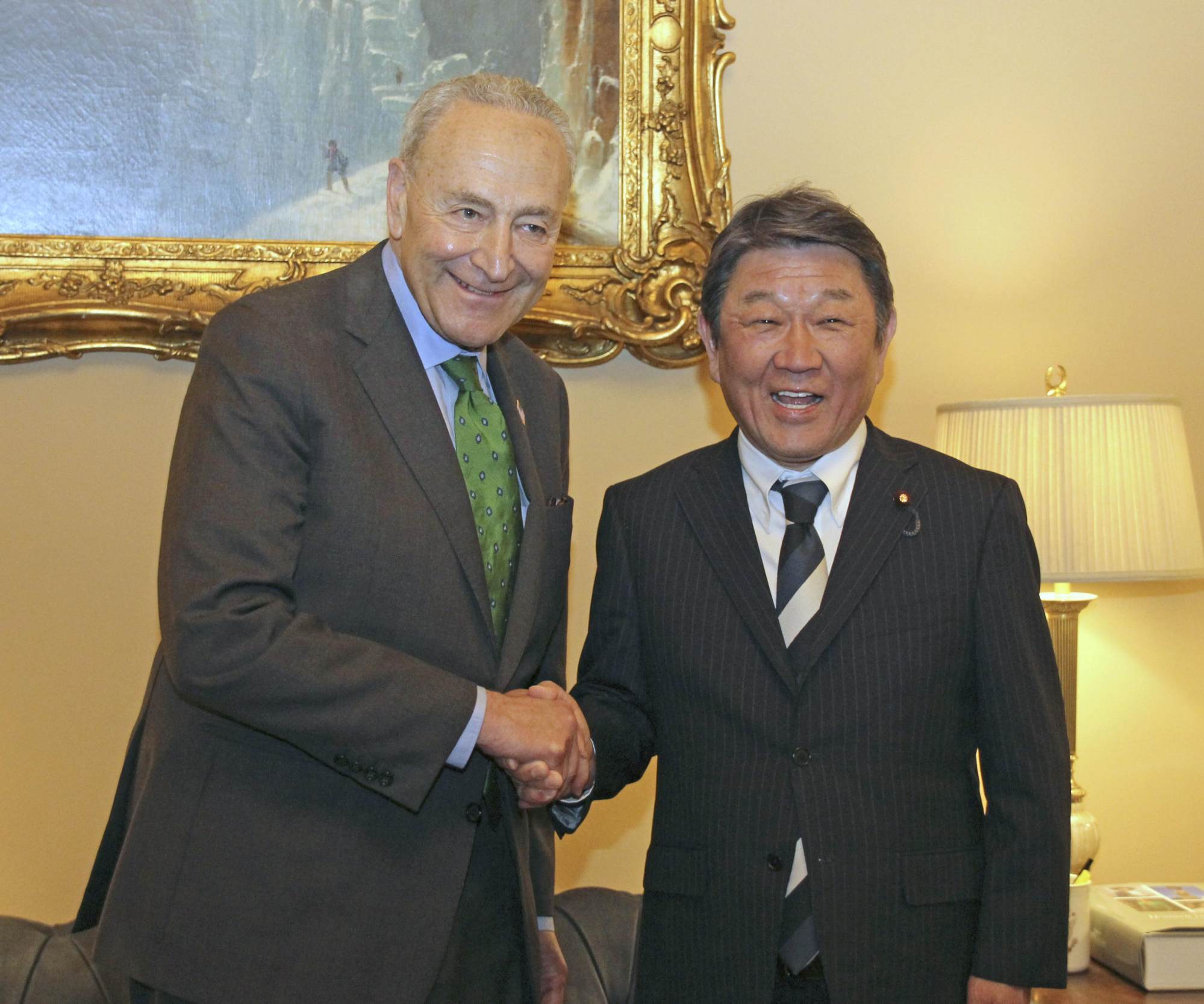
Is Japan’s Toshimitsu Motegi eyeing the top job despite his aloof image and low support ratings?
- Following a flurry of international trips, the secretary general of Japan’s ruling LDP could be boosting his credentials for a shot at the leadership
- Analysts agree Motegi has extensive diplomatic experience but also point out weaknesses such as ‘a lack of warmth and empathy’ connecting with voters

Analysts, however, are unconvinced that Motegi has what it takes to wrest the leadership away from Kishida, or to fend off challenges from other potential candidates.
While analysts concur that Motegi – who heads the Heisei Kenkyukai faction whose 54 members make it the third-largest group in the LDP – has extensive experience, they point out that he has a number of weaknesses, such as rubbing fellow politicians and bureaucrats the wrong way and an aloof image among the public.
And that has translated into a support rate hovering around 1 per cent, according to a Jiji Press poll in April in which members of the public were asked which politician they would like to see take over as prime minister should Kishida step down.
He has been listed as one of the ‘next generation’ potential leaders of the party and a future prime minister, but … he is just not well enough known among the public
“He has been listed as one of the ‘next generation’ potential leaders of the party and a future prime minister, but my sense is that he is just not well enough known among the public,” said Hiromi Murakami, a political-science professor at the Tokyo campus of Temple University.
“His credentials are clearly very strong – he attended graduate school at Harvard University, was first elected back in 1993 and has experience in a number of ministry posts – but he lacks the friendliness and the sense that you would want to talk to him that is necessary to succeed to win over voters,” she told This Week In Asia.
Motegi is likely to face competition from Foreign Minister Yoshimasa Hayashi, Minister of Digital Affairs Taro Kono, former defence minister Shigeru Ishiba, Shinjiro Koizumi, the former minister of environment and son of Junichiro Koizumi, and Koichi Hagiuda, chairman of the party’s Policy Research Council.
“Motegi is the leader of one of the most powerful factions within the party and that should be a big factor in his favour, but he is weakened by his image in the eyes of the public,” said Yoichi Shimada, an international-relations professor at Fukui Prefectural University.
Motegi did not help his image when he was photographed leaving Tokyo’s Haneda Airport dressed in a white jacket, open-neck shirt and sunglasses, Shimada said.
“People were shocked and asked how he expected to be taken seriously and when he was on such an important trip on behalf of the nation, but looked ridiculous,” he said. “If he can’t recognise the way he dressed was inappropriate, how is he ever going to get to grips with critical domestic or international issues?”
Shimada believes it is highly unlikely that Motegi will be able to rebuild his reputation with the public, or sufficient numbers of fellow politicians, to ever unseat Kishida.

